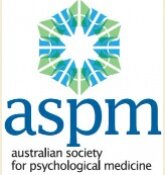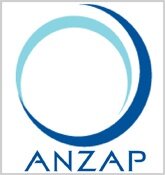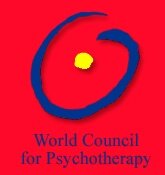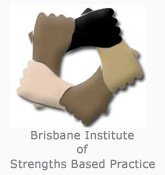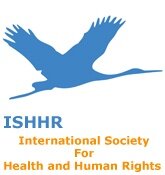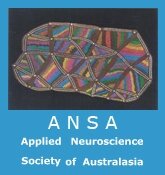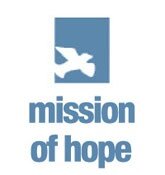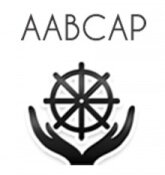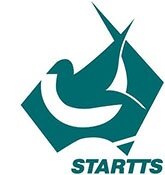Supporting Refugee and Refugee Communities in Times of Crisis
|
| TITLE |
SPEAKER |
| Psychosocial Impact of the 'War on Terror' on Muslims Settling in Australia |
Nooria Mehraby |
|
| A discussion on the Journey of interaction with clients of STARTTS and that of other refugees via the teaching of situational English |
Maureen O'Connor |
|
| The Anatomy of Rape. Rebuilding dignity in the face of shame and dishonour |
Eileen Pittaway |
|
| Refugee Women; War, Rape and Sexual Abuse (in Conversation) |
Eileen Pittaway |
|
| Support strategies for women affected by war-related sexualised violence |
Karin Griese |
|
| Why is SOMSTARTTS needed? |
Mohamed Baaruud |
|
| Finding Comfort in the Discomfort: helping Asylum Seekers sit with uncertainty |
Dominica Dorning |
|
|
|
Introduction to Refugee Trauma
|
| TITLE |
SPEAKER |
| The challenges of working with refugee trauma |
Jorge Aroche |
|
|
|
Torture, the wider picture
|
| TITLE |
SPEAKER |
| Medir la eficacia del tratamiento psicosocial que reciben las victimas de tortura |
Haydee Anton Sarmiento |
|
| Collective reparation and rehabilitation after torture. |
Nora Sveaass |
|
|
|
Assessment of Refugee trauma
|
| TITLE |
SPEAKER |
| Psychological Assessment of Torture and Trauma Survivors |
Gordana Hol-Radicic |
|
| Anger in the context of assessment and management of refugee trauma. |
John O'Connor |
|
| Complicated grief in Bosnian refugees: Associations with PTSD and depression following ethnic Cleansing. |
Shakeh Momartin |
|
| Understanding and treating mental ill-health in asylum seekers |
Debbie Hocking |
|
| Recent work on the Thai-Burma border where communities of Burmese have lived for decades without employee, health and human rights |
Mary Ditton |
|
|
|
Treatment of torture and trauma survivors
|
| TITLE |
SPEAKER |
| Psychological and Physiological Responses to Traumatic Memories in STARTTS clients |
Gordana Hol-Radicic |
|
| Community level interventions in working with torture and trauma survivors - nexus between theory and practice |
Jasmina Bajraktarevic-Hayward |
|
| Psychoeducation as an integrative part of therapy with clients who suffer from PTSD |
Indira Haracic-Novic |
|
| Mindfulness Treatment with Torture and Trauma Clients at STARTTS (Case study) |
Gordana Hol-Radicic |
|
| Integration of spiritual practice in helping professions. |
Nooria Mehraby |
|
| Mental health in newly arrived asylum seekers in Norway (In conversation) |
Nora Sveaass |
|
| Dialectic Behaviour Therapy (DBT) with Torture and Trauma Clients at STARTTS (Case study) |
Gordana Hol-Radicic |
|
| Utilising heart Rate Variability (HRV) as an integrative approach to assessment and treatment in torture and trauma survivors |
Gordana Hol-Radicic |
|
| As a group we do better: Twenty years of a Latin American Refugee Women's self-help group, based on a systemic bio-psycho-social approach. |
Lucy Marin |
|
| Supporting Adolescent Refugees through Music and Art Therapy |
Jane Griffin |
|
| Self-harm and suicide risk amongst asylum seekers. |
Omara Memon |
|
| Suicide and self harm prevention with asylum seekers: Clinical challenges and human rights dilemmas. |
Michael Dudley |
|
| The Conversational Model approach to guilt and shame associated with trauma. |
Joan Haliburn |
|
| Utilising mindfulness and neuroscience: a case study of an Iranian refugee. |
Gordana Hol-Radicic |
|
| Case studies from GCRT of victims of war and other types of violence |
Nino Kiladze |
|
| Utilising group therapy approaches to assist recovery of torture and trauma survivors |
Boris Dro?ek |
|
| A case study of a refugee client with PTSD and Mild Traumatic Brain Injury |
Mirjana Askovic |
|
| Attachment and Refugee Trauma: a case study of an Iranian man's journey toward recovery |
Emma Boles |
|
|
|
Refugee, diet and nutrition
|
| TITLE |
SPEAKER |
| Nutrition and psychological well-being: An integral part of clinical interventions. |
Margaret Allman-Farinelli |
|
| Diet/Nutrition counselling and its impact on psychological well-being in the context of refugee trauma. |
Sivaharani Mayuran |
|
|
|
Refugees and cultural issues
|
| TITLE |
SPEAKER |
| The Role of Culture in Mental Health Outcomes for Sub- Sahara African Refugees: Challenges, Opportunitiesand Strengths |
Mohamud Sheikh |
|
| Cross-cultural Counseling: A Case Study of a Sudanese Refugee |
Naome Madut |
|
| Counselling Afghanistan Torture and Trauma Survivors |
Nooria Mehraby |
|
| Islamic belief in healing of Trauma; A case study of an Afghan Refugee |
Nooria Mehraby |
|
| Integrating counselling and acupuncture to support the healing of trauma of a Sudanese Woman |
Thuy Tran |
|
| Refugees show path back to community. |
Jim Diers |
|
| Accentuate the positive. |
Lina Ishu |
|
| Tyranny and trauma: self-psychology and the experience of Burmese refugees in Australia |
Raymond Tint Way |
|
| Applying an acculturation lens for better working with refugee families and communities |
Andre Renzaho |
|
| Assisting cultural transition using the Families In Cultural Transition (FICT) program. |
Mohamed Dukuly |
|
| Raising girls, raising boys is tough in anyone's 'Language'. |
Anne Hollonds |
|
| Utilising culturally adapted CBT with non-Western clients: A case study of a Muslim Iraqi woman. |
Nooria Mehraby |
|
|
|
Refugee Trauma and the Experiences of Loss and Grief
|
| TITLE |
SPEAKER |
| An exploration of traumatic grief within the context of continuing trauma, a case presentation. |
Julie Savage |
|
| The meaning of place and psycho-cultural border zones: reflections on migration, trauma, shame, legitimacy and identity. |
Amanda G. Dowd |
|
| Thinking about loss, identity and culture in the context of refugee trauma |
Nooria Mehraby |
|
|
|
Refugees at school
|
| TITLE |
SPEAKER |
| Benefits of conducting groups with students from refugee backgrounds in the school context. |
Elisabeth Pickering |
|
| Implications for learning a second language: Effect on progress in school and sociability. |
Devon Barnes |
|
| Rewiring the brain through fun and games. |
Sejla Tukelija |
|
|
|
Refugee and Resilience
|
| TITLE |
SPEAKER |
| Resilience in Resettlement: Young People from Refugee Backgrounds Discuss Mental Health, Wellbeing and Coping Strategies. |
Mike Oliver |
|
| Resilience and Refugee Trauma: From Research to Clinical Interventions |
Angela Nickerson |
|
| The role of Hope and Resilience in overcoming Refugee Trauma |
Shaheen Kohsar |
|
| Arent they ordinary people? They are just like you and me....but, have survived extraordinary challenges |
Pearl Fernandes |
|
| Working Psychologically with Asylum Seekers whose Claims have been Rejected |
Guy Coffey |
|
|
|
Treatment of Children and Adolescents of torture and trauma survivors
|
| TITLE |
SPEAKER |
| The developmental context of refugee children culture, war and Eriksons stages |
Deborah Gould |
|
| Jungle Tracks; road to recovery and reflection- a story telling approach to assist refugee children, adolescents and parents integrate and manage the distress related to bereavement, trauma, discrimination and stress induced by the refugee experience. |
Pearl Fernandes |
|
| Thinking Psychodynamically with Refugee Children and their Families. |
Peter F Blake |
|
| WHEN EAGLES DARE Integrating group psychotherapy and sporting activities when working with unaccompanied minors granted temporary protection visas. |
Pearl Fernandes |
|
| An Interview with Amber Gray on Dance Movement Therapy and Social Engagement. |
Amber E Gray |
|
| Psychoeducation as resilience-building for asylum-children with traumatized parents |
Anne Bovbjerg |
|
| Short-term group intervention for newly arrived refugee children: Helping to rebuild children' lives after trauma |
Cecilia Carranza |
|
| Benefits of conducting groups with students from refugee backgrounds in the school context. |
Elisabeth Pickering |
|
| Implementing a whole school approach to supporting students of refugee background. |
Samantha McGuffie |
|
| Who do you trust? Engaging meaningfully with young men and boys. |
Gode Migerano |
|
| Group intervention with children |
Carlos Saavedra |
|
| Soccer in recovery of young refugee torture and trauma survivors |
Mohamed Baaruud |
|
| Multimodal approach in treating the impact of trauma on refugee children. |
Mirjana Askovic |
|
| Discovering Resilience in the Rhythm of the Body and the Melody of the Music |
Chiara Ridolfi |
|
| Utilising Sandplay in Treating the Impact of Refugee Trauma: A case study of an Iraqi boy |
Sanja Stefanovic |
|
|
|
Refugee Trauma and the Elderly
|
| TITLE |
SPEAKER |
| Ageing and dealing with past traumas in an unfamiliar environment. |
Franka Bosnjak |
|
|
|
Somatically Orientated Approaches in the Treatment of Torture and Trauma Survivors
|
| TITLE |
SPEAKER |
| Physiotherapy with Torture and Trauma Survivors. |
Susan H Roxon |
|
| Trauma and Chronic Pain: Integrating Positive Psychology approaches into biofeedback based Heart Rate Variability training; an overview. |
Tom Neser |
|
| Trauma and Chronic Pain: The Integration of Biofeedback, Hypnosis and Mindfullness in Psychotherapy. |
Tom Neser |
|
|
|
Dialectical Behavioral Therapy DBT Orientated Approaches in the Treatment of Torture and Trauma Survivors
|
| TITLE |
SPEAKER |
| Complex Trauma and Dialectical Behavioural Therapy |
Peter King |
|
|
|
Impact of Torture and Trauma work on Therapist
|
| TITLE |
SPEAKER |
| Culture and Countertransference in Trauma counselling with Refugees |
Deborah Gould |
|
|
|
Integration of Neurofeedback in work with Torture and Trauma Survivors.
|
| TITLE |
SPEAKER |
| Strengthening clients capacities and sustainability by utilising Neurofeedback therapy in a Complex Post Traumatic Stress Disorder (C-PTSD) symptomatology |
Gordana Hol-Radicic |
|
| The role of Neurofeedback in the context of an agency wide, systemic approach to assist traumatised populations. |
Jorge Aroche |
|
| Trauma and Chronic Pain: Integrating Positive Psychology approaches into biofeedback based Heart Rate Variability training; an overview. |
Tom Neser |
|
| An Interview with Amber Gray on Dance Movement Therapy and Social Engagement. |
Amber E Gray |
|
|
|
Clinical Intervention
|
| TITLE |
SPEAKER |
| Effective Clinical Interventions with Asylum Seekers |
Zachary Steel |
|
|
|
This section is dedicated to explore the diverse issues pertinent to psychotherapeutic work with refugees in general and torture and trauma survivors in particular. Refugees settling in Australia are one of the most heterogeneous client populations that we are likely to encounter as helping professionals. They represent an enormous variety of and cultures, languages socio-political backgrounds, with associated challenges for service providers. Refugees are arguably also one of the most traumatized groups in our society. In addition to a high incidence of exposure to severe trauma and multiple losses, they also face additional stressors associated with the refugee experience, migration and resettlement. The resulting interaction is complex, and can result in a vast array of secondary problems. The lectures in this section focus on different aspects of this complex interaction and the issues for clinicians and other service providers. They also explore various models, interventions and approaches to address these issues at a practical level.


